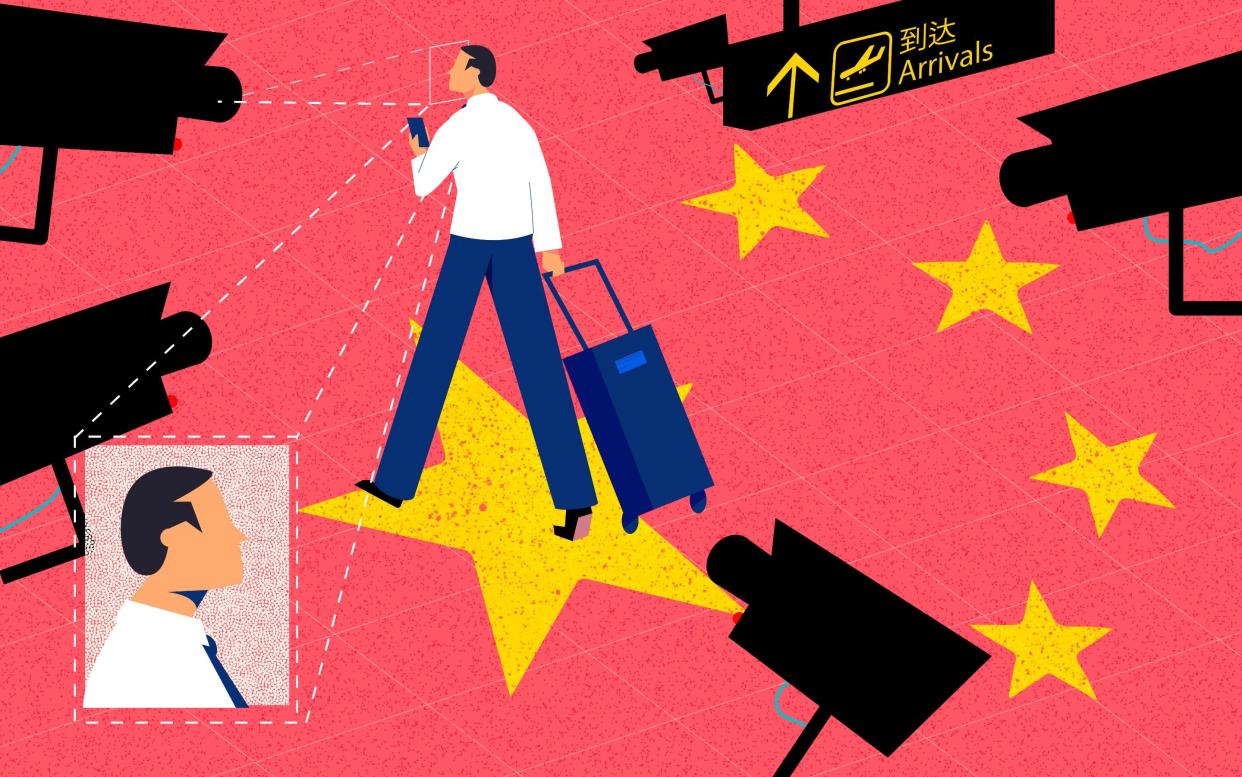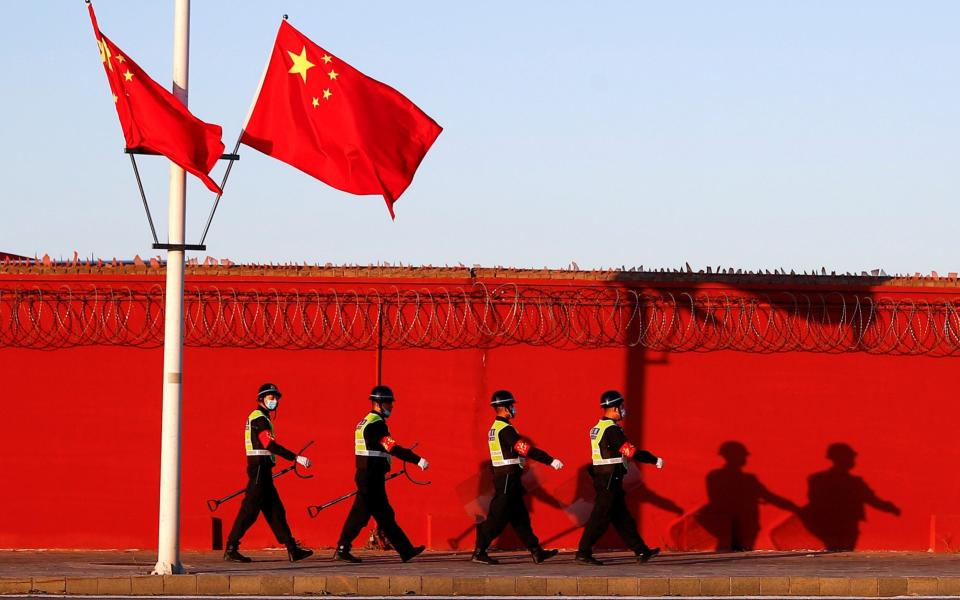China's Ministry of Public Security – the 'coercive arm' of the Communist Party – is always watching

- Oops!Something went wrong.Please try again later.
Just a few blocks from the Yellow River that slices through Shanghai is a sprawling stone building in one of the city’s oldest districts. A sign, emblazoned with the words “Public Security,” stretches across the entrance.
This is one of the thousands of stations in China that fall under the Ministry of Public Security (MPS) – some housed in mammoth buildings and others in mobile van units – responsible for law and order.
Day-to-day, the MPS works to combat criminality in all its forms – homicide, theft, drugs, economic crime, counterterrorism. It also functions at the grassroots-level – conducting neighbourhood patrols, shooing away illegal street vendors, writing traffic tickets and ensuring social distancing compliance in restaurants.
But in China, the MPS – with two million officers and a widespread network of branches – does much more than a regular police force.
“The MPS – they aren’t just police,” said Samantha Hoffman, a senior analyst at the Australian Strategic Policy Institute, a think tank.
“They’re there to protect the party-state as well, and Xi Jinping has made that clear... Ultimately, the MPS is loyal to the [Chinese Communist] Party, and must be loyal to the Party, just like any other part of the party-state.”

Above all, the MPS “is the coercive arm of the Communist Party,” said Edward Schwark, an academic who studies China’s security policy and PhD candidate at the University of Oxford. “It is tasked fundamentally with enforcing dictatorship over the Party’s enemies. That is how the MPS sees its core mission.”
In recent years, public security bureaus across China, like the one in Shanghai, have upgraded their technological capabilities to serve a multitude of purposes, collecting millions of data points on Chinese citizens, foreign residents, and visitors, such as business people, tourists and exchange students.
Anyone entering China is tracked – upon landing, biometric data is collected, and their movements are recorded as people pass through checkpoints while on the go.
Further data comes in via high-tech surveillance, implemented by using scores of cameras, facial recognition technology, and GPS systems.
To a certain extent, data captured in this way is routine and can help the authorities, for instance, by improving traffic management and identifying potholes for repair. But experts say the same technology is also used to track and suppress individuals deemed a threat or a target to watch, like human rights dissidents and diplomats.
“This is the way the party approaches social management – it’s not coercive all the time, because it’s problem-solving as well,” said Ms Hoffman. “But it doesn’t mean that it’s one or the other; it’s always both.”
“The ultimate goal for the Party is really its own security,” she said. “Social management fits within that framework… [in terms of] preventing the emergence of a crisis at all.”
China’s security agencies, including the MPS, also have access to data and activity by users via social media platforms run by private, third-party companies, like Tencent’s ubiquitous WeChat platform.
This allows Chinese authorities to find and reprimand people like late whistleblower Dr Li Wenliang, who warned colleagues of a novel coronavirus in late 2019 using WeChat.
It’s unclear how long such data is kept by an agency like the MPS and its web of bureaus – possibly indefinitely, experts said.

What is clear is that China is working on how to make better sense of all the data being collected with artificial intelligence, and organising it in a more coherent way by integrating different platforms used.
In the long run, experts like Ms Hoffman say China is on track to create a digital authoritarian state with hardware and software that can be easily exported to other countries.
One of the reasons China’s police have been drawn towards the use of technology is partly related to how the ministry has organised and funded local bureaus, said Mr Schwarck.
The central government will foot part of the budgets of local public security bureaus, but much of the funding comes from lower levels of government, which often don’t have enough resources to spread around.
Technology “allows them to address, or circumvent some of the longstanding problems they’ve had with budgetary resources and manpower shortages”, said Mr Schwarck. “These networks – surveillance platforms, CCTV cameras – offer a sort of coverage that a police force, just in manpower terms, wouldn’t be able to offer otherwise.”
“It’s like a force multiplier,” he said. If there aren’t “enough police on the beat, you don’t have enough resources to launch investigations, it’s handy to have this sort of system of network surveillance that gives you a ubiquitous view of what’s going on”.

